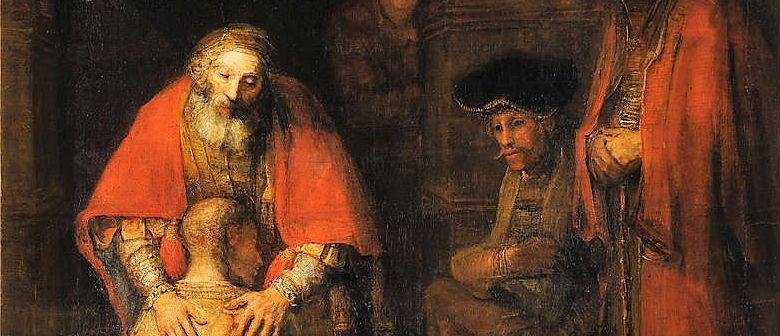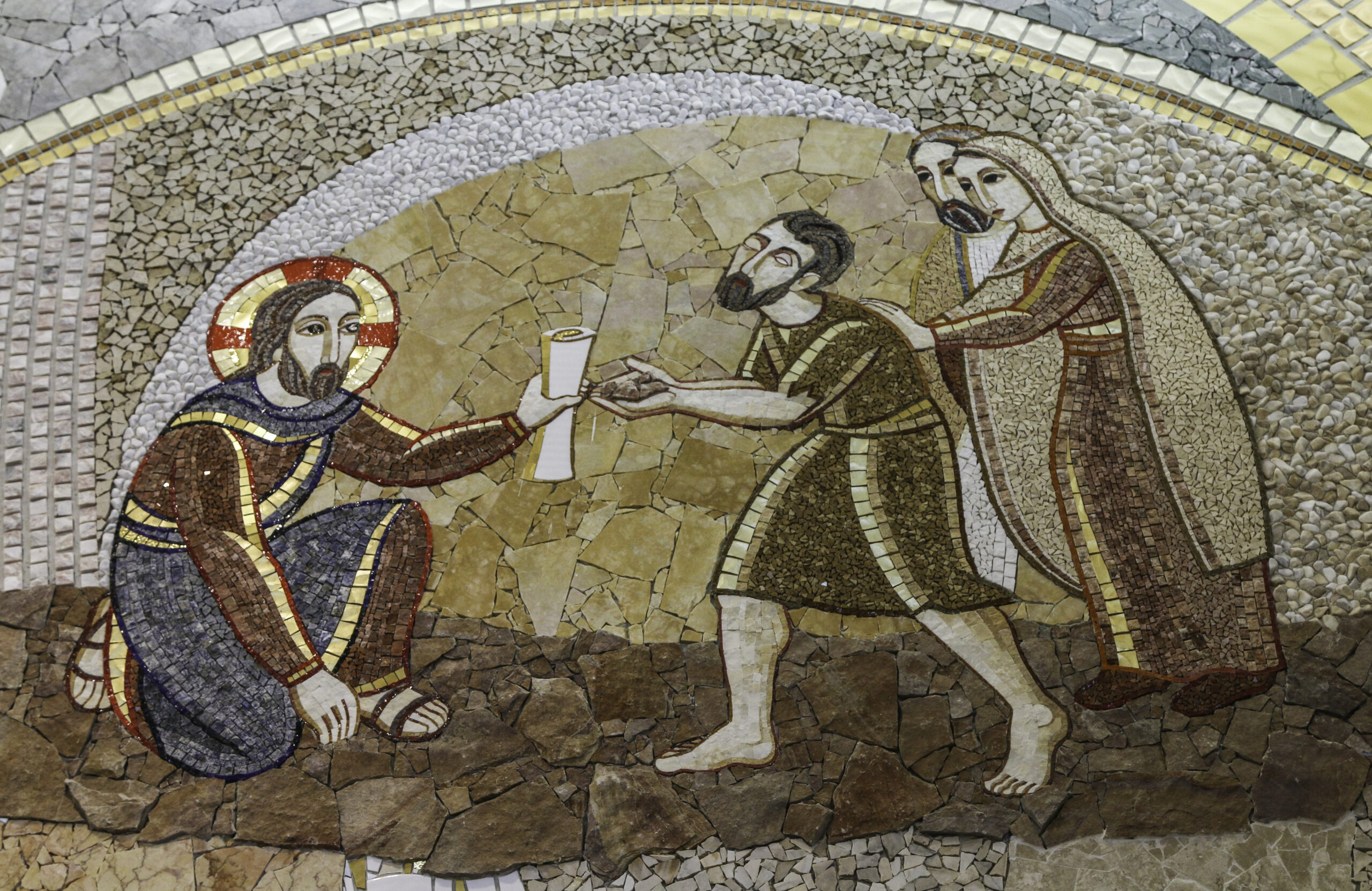Today we have in our Gospel reading one of my very favorite parables; maybe it’s your favorite too. It’s one that we have heard so often, and I think it’s one that we can see with the eyes of our imaginations. Three main characters: a forgiving father, a prodigal son, and a loyal, but perhaps cranky, son. It’s the kind of family situation I think we can all wrap our minds around; maybe it sits a little uncomfortably close to home.
So it says right at the beginning that “a man had two sons.” And I think we need to keep that in mind, and I’ll say more about that in a bit. But the one son is dissatisfied with his life so much so that he feels the need to change it: he asks for his share of the inheritance right now, before his father is even dead. And that is a request is so presumptuous that it feels hurtful. Kind of like saying, “Hey dad, I wish you were dead, give me my inheritance now, please – I just can’t wait.” But the Father gives him the inheritance immediately and without ill-will. And you better believe that would have ruffled the feathers of Jesus’ hearers: there were strict rules of propriety in families and this absolutely flies in the face of that.
But the other son is almost as guilty of that as the younger son. When the story runs its course, and the younger son returns to the father with his little memorized speech, the father, who has been waiting for his return, is moved with compassion and runs out to meet him. They throw a big party, but apparently they didn’t send someone out to invite the older son. On his return from the fields, he is indignant, partially, I think because he was overlooked, but also and importantly because He feels the injustice of the younger son being rewarded after tearing apart the family. His refusal to come in to join the feast and his making the father come out to him could also be seen as sinful.
What amazes me is that the Father comes out of the house to meet both sons. That’s significant because a good Jewish father in those days wouldn’t come out to meet anyone – they would come to him. Probably on their hands and knees, begging for forgiveness. But the Father meets them where they are and desperately, lovingly, pleads with them to join the feast. It’s an image of our loving, forgiving Father God who won’t let anything – not past hurts, not resentments, not social propriety, not even our darkest sins – get in the way of his mercy, and love, and forgiveness, and grace. That’s the God we worship; that’s the Father we have.
I love to call this the parable of the Forgiving Father, because I don’t think the point of this is to look at the son. I think the point of this is to look at the father, whose mercy and forgiveness are prodigious and even a little outlandish! The point of this is that, if we prodigal ones would just return, God will meet us more than half way. That’s a great message for Lent, and it gives us the action item of admitting our sins and returning to the Father.
But there’s another way to look at this parable too. Again, the emphasis is going to be on the father, but this time the father is us. Bear with me on this. Amy Jill Levine, a Jewish scripture scholar, reads the parables with the eyes of one who has grown up with the Old Testament, much as Jesus and his hearers did. And so she sheds a little light on this parable that made me look at this anew this week and say, “Hmm…”
So the father is us. A man had two sons, but he forgot to count. Let’s face it, the older son does get the rotten end of the stick here – I’ve always felt that when I read the parable growing up. But it was selfish of me because I saw myself as the loyal, hard working son, which, seen at age sixty, I can see is far from true. But that son does get the rotten end of the stick. Look at what happens: the younger son is rewarded for his initial disrespect in asking for the inheritance, and then when he comes back poorer and broken, he is rewarded with a feast. And not only that, apparently they had time to call the caterer, and time to shop for a ring and sandals, but they didn’t have time to tell the older son, who is out working hard for his father in the fields? What kind of craziness is that? Any one of us would be indignant.
A man had two sons, but he forgot to count. That father, who is us, is all about taking care of the child who is most needy, to the detriment of the other son. Professor Levine says that it reminds her of her students: it’s easy to cater to the A-students and reward their accomplishments; it’s even easy to journey with the students who are having difficulty, offering them tutoring or answering questions. But the ones who are the B+ students, who can’t seem to cross the line to the A, do they count too? Think about that in our lives. The people who are good to us and doing good things are easy to walk with, they even support us. And we have the ones who are challenging, and we do everything we can to help them, out of love. But are there people in our lives that we forget to count? Who do we need to notice more, to think of more, to love more, this week? Perhaps that’s our action item this week.
So whether our action item is admitting our sins and returning to the Father, or remembering to count and love the ones in our lives who we tend to forget, we have work to do. We have to return to God for forgiveness and mercy, and we have to love everyone in our lives as if they were the only ones there. The stakes of letting this parable fly past us and not engaging it are too high: we would be missing out on the banquet of eternal life to which Jesus Christ came to bring us. Taste and see that the Lord is good!



You must be logged in to post a comment.